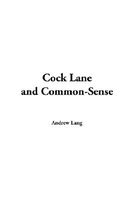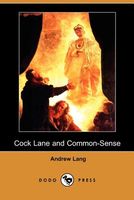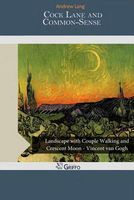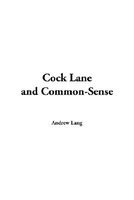- Welcome to FictionDB, Guest
- | My Account
- | Help

Cock Lane And Common Sense — Andrew Lang
Since the first publication of Cock Lane and Common-Sense in 1894, nothing has occurred to alter greatly the author's opinions. He has tried to make the Folklore Society see that such things as modern reports of wraiths, ghosts, 'fire-walking, ' 'corpse-lights, ' 'crystal-gazing, ' and so on, are within their province, and within the province of anthropology. In this attempt he has not quite succeeded. As he understands the situation, folklorists and anthropologists will hear gladly about wraiths, ghosts, corpse-candles, hauntings, crystal-gazing, and walking unharmed through fire, as long as these things are part of vague rural tradition, or of savage belief. But, as soon as there is first-hand evidence of honourable men and women for the apparent existence of any of the phenomena enumerated, then Folklore officially refuses to have anything to do with the subject. Folklore will register and compare vague savage or popular beliefs; but when educated living persons vouch for phenomena which (if truly stated) account in part for the origin of these popular or savage beliefs, then Folklore turns a deaf ear. The logic of this attitude does not commend itself to the author of Cock Lane and Common-Sense. On the other side, the Society for Psychical Research, while anxiously examining all the modern instances which Folklore rejects, has hitherto neglected, on the whole, that evidence from history, tradition, savage superstition, saintly legend, and so forth, which Folklore deigns to regard with interest. The neglect is not universal, and the historical aspect of these beliefs has been dealt with by Mr. Gurney (on Witchcraft), by Mr. Myers (on the Classical Oracles), and by Miss X. (on Crystal-Gazing). Still, the savage and traditional evidence is nearly as much eschewed by psychical research, as the living and contemporary evidence is by Folklore. The truth is that anthropology and Folklore have a ready-made theory as to the savage and illusory origin of all belief in the spiritual, from ghosts to God. The reported occurrence, therefore, of phenomena which suggest the possible existence of causes of belief not accepted by anthropology, is a distasteful thing, and is avoided. On the other hand, psychical research averts its gaze, as a rule, from tradition, because the testimony of tradition is not 'evidential, ' not at first hand.
Genres
Click on any of the links above to see more books like this one.






